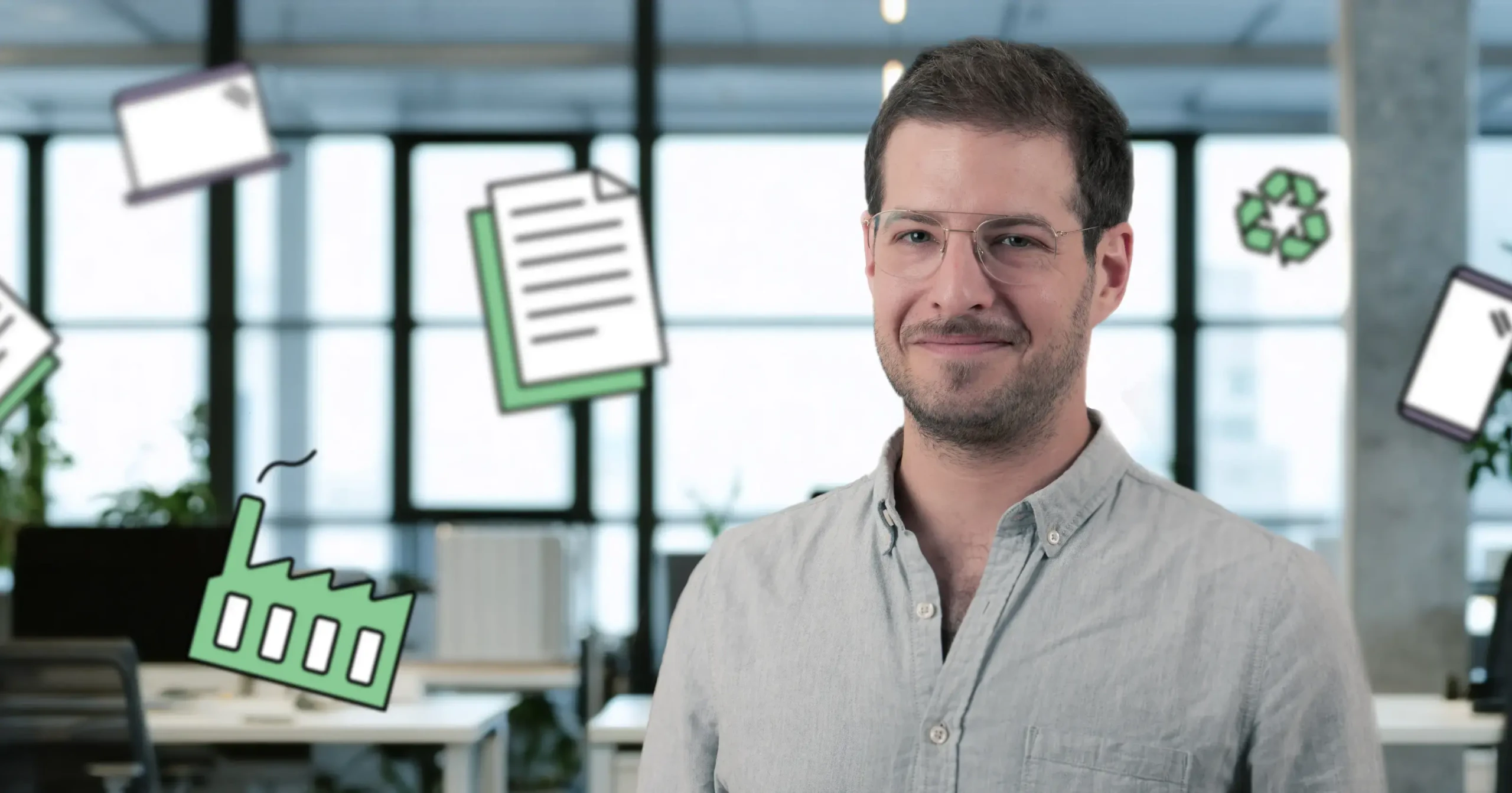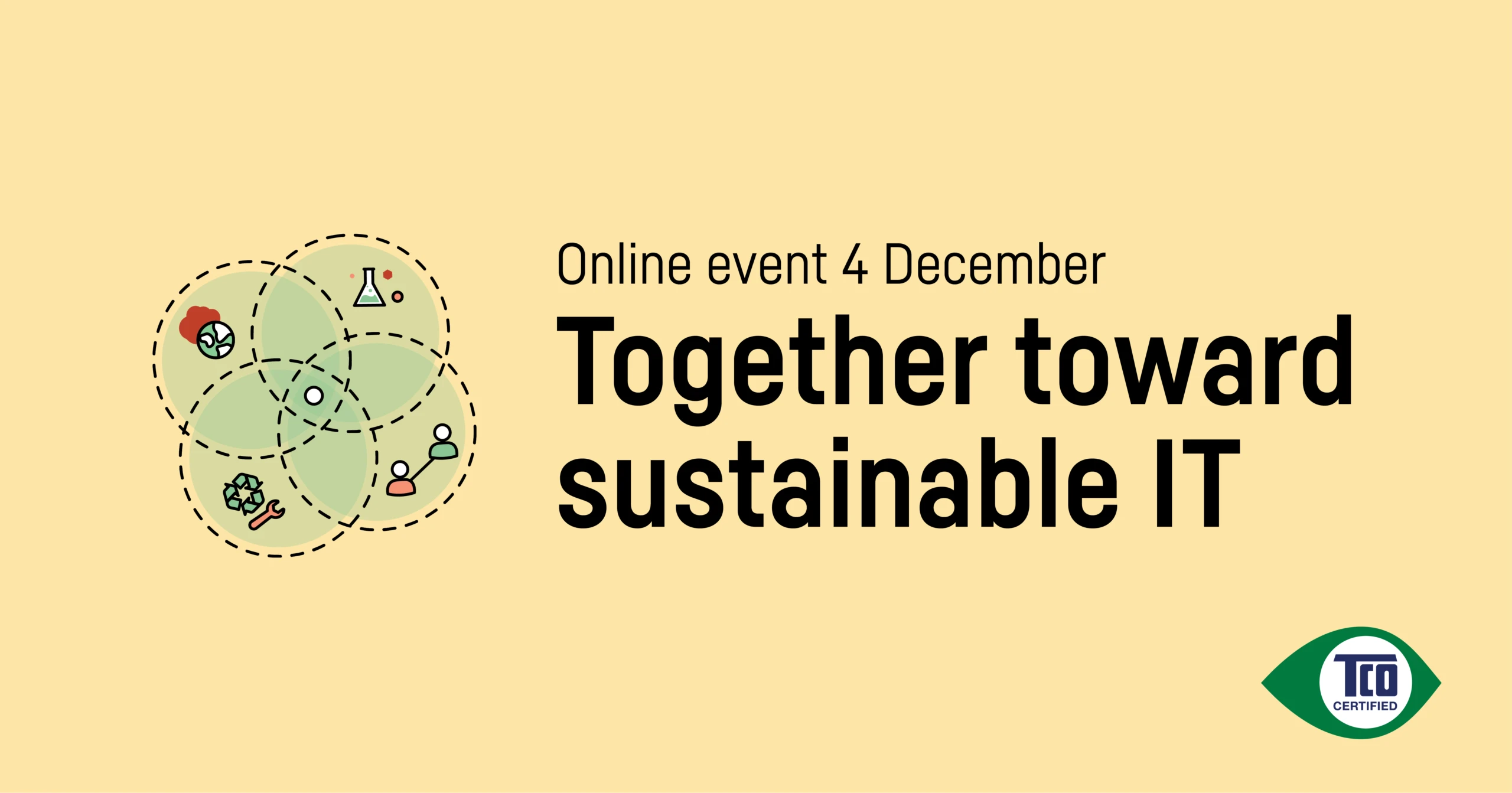E-waste tops the sustainability agenda and is one of the recurring talking points when addressing the circular economy. We recently hosted an online seminar on e-waste and invited a group of experts to talk about the issue. To follow-up on the questions received, we decided to let the experts answer your questions in this blog series.
Joost de Kluijver, Founder at Closing the Loop, answers questions asked during our webinar How to reverse the growing negative trend of e-waste.
E-waste is also a valuable resource in developing countries that generates income for local communities Can you comment on this? Can you reflect on the balance between social benefits from e-waste compared to the environmental costs?
When e-waste is properly collected and recycled, there are only benefits: people get paid to do safe and environmentally sound work, they learn about the importance and opportunities of recycling, and, of course, valuable resources are recovered. If electronic waste is handled in the way we currently see across the emerging world, the result will be pollution, negative effects on nature and human health, and increased material scarcity.
How do you differentiate between e-waste and products that can be reused in developing countries?
We do not. The market does that for us. We pay only a small price for the waste that we collect, (a few euro per kilo). As a result, no-one will sell a usable phone to us, because it will be worth much more than the price we pay. This means we only receive the electronics people really can not use anymore – the waste.
Is there a risk in cutting flows of second-hand electronics to developing countries when this may result in cheaper produced alternatives instead that will thus create more e-waste in the long run?
It is very clear that preventing the shipment of re-usable ICT to the emerging markets will not solve any problem. It simply means that more devices will be destroyed in Europe or the US, (where there is less demand for used ICT). And that the supply of low quality, sub-standard, (and often counterfeit), electronics from Asia to Africa will only increase.
What are the health costs associated with e-waste
These are difficult to calculate. It is known that recycling e-waste reduces global carbon emissions. And that current e-waste management in Africa includes burning, (polluted air), and dumping, (polluted water and land). The latter will affect us all, at some point.
What is the main problem with e-waste?
I would say that there is a lack of a business model and a lack of demand for proper e-waste recycling, especially in emerging markets. If more demand could be created, it would prevent dumping and illegal recycling, as people could make money from managing e-waste in the right way. That is why Closing the Loop created a business model that is based on a service we call ‘e-waste compensation’. We ‘compensate’ the electronics that our customers purchase, by collecting the same quantity of end-of-life electronics. This funds proper e-waste collection and turns a global challenge – e-waste – into a global opportunity that benefits mainly emerging markets.
How do you suggest this problem is tackled?
CTL believes that on the short term, only market forces can solve the problem of current e-waste mismanagement. When the market demands circular solutions – because these are offered in appealing and affordable ways – we can all benefit from these solutions. When you buy an electronic device, ask your supplier to ensure the proper collection and recycling of a similar device that has become end-of-life. That way, we close the loop.
What is your final message on what should be done to reverse the negative growing trend of e-waste?
Start thinking in possibilities, in opportunities: look for ways to be part of the solution. Be vocal about your wish for a more sustainable, waste-free industry. Start doing something that you think can be an improvement, or ask for proven solutions. We can only change if we act.
More answers from our panelists
Pascal Leroy on the importance of enforcing regulations for e-waste
Sofia Nygård wants IT buyers to keep it simple and be brave
Joost de Kluijver calls for circular solutions for e-waste
Andreas Rehn talks about circular actions to reduce e-waste




